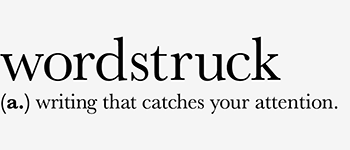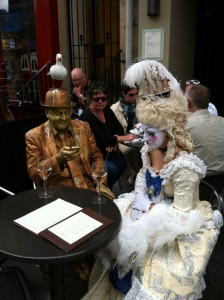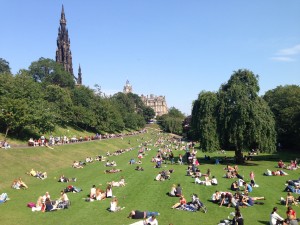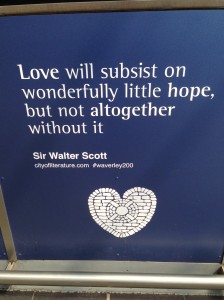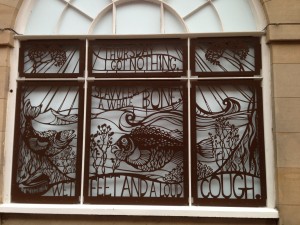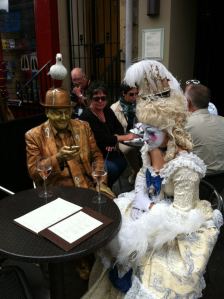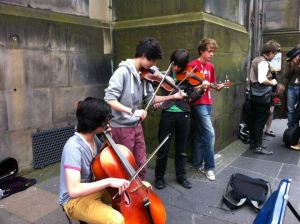In the world of business writing you’ll find plenty of objectives, measures and rationale. Sometimes they even sit alongside insights, research and objectives. And they always come with deadlines. But I’ve rarely found much creative inspiration.
Little wonder really when you think about how hard it is to measure and quantify. What’s the ROI of a book? How much value did watching that film bring to the project? What’s the cost per idea ratio?
Creative inspiration can’t be easily quantified and defies attempts to render it into the boxes of a spreadsheet.
And yet, it’s that spark, that different way of looking at things, that new metaphor that my marketing customers are searching for and hope that creative teams will supply.
As a writer, its almost as hard for me to quantify its importance in terms of how it makes me feel or inspires me to think and write. Except to say that it is.
And that’s why I make an effort to seek it out, enjoy it and expect nothing from it. Yet it’s proved its worth beyond measure.
My yearly trips to the Edinburgh Book Festival are a liberal dousing of inspiration. The speakers, events and readings a rich seam, along with travelling there to take in the sights, sounds and general hullaballoo of the fringe – a huge outpouring of creative energy.
Art, theatre, cinema, music, travel, nature – these have all supplied inspiration in their time. And when all else fails I’ll read. Stories will never fail me.
On Sunday, I went to hear Simon Armitage at the Durham Book festival. He was talking about and reading from his latest prose work, based on walking part of the South West coast, relying on strangers for food and lodging and giving poetry readings at his stopping points. Themes of journey and return. Of language and experience. Of travelling in the landscape, encountering strangers. Of simultaneously craving company and wanting to be alone.
I filled a page of my notebook with phrases and filled my head with even more thoughts and ideas which may spark and grow. What will become of them, it’s too early to say. Even when I write I may not realise that’s where the idea came from.
But I was able to thank Simon Armitage for helping me find a way in to a piece of personal writing. I first encountered his poem ‘Not the Furniture Game’ http://www.simonarmitage.com/kid.html on a Dark Angels course. It’s a striking, harsh and rich piece in its own right, and when used as a loose framework for our own creative writing, produced deep, emotional responses. It’s an exercise I’ve repeated on subsequent courses, with different objects, and it’s always bubbled up beautiful, touching and expressive images.
It helped me find a way into a personal piece I was finding impossible to write. When draft after draft nothing fit, everything sounded trite and cliched, I used the structure and exercise to unlock a way in. Sometimes that’s all it takes – a nudge in the right direction.
This weekend I’m off to Wordstock for another dose of inspiration. A journey, the fellowship of fellow writers, and a chance to listen and enjoy a range of different talks and sessions. Last time, it inspired the amazing 26 Under a Northern Sky collection.
Where do you find your creative inspiration?
